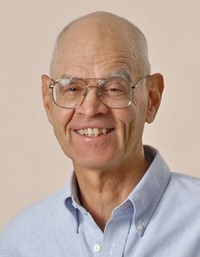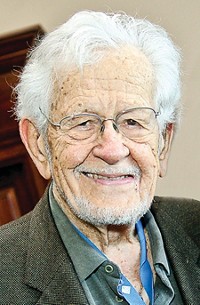Advertisement
Grab your lab coat. Let's get started
Welcome!
Welcome!
Create an account below to get 6 C&EN articles per month, receive newsletters and more - all free.
It seems this is your first time logging in online. Please enter the following information to continue.
As an ACS member you automatically get access to this site. All we need is few more details to create your reading experience.
Not you? Sign in with a different account.
Not you? Sign in with a different account.
ERROR 1
ERROR 1
ERROR 2
ERROR 2
ERROR 2
ERROR 2
ERROR 2
Password and Confirm password must match.
If you have an ACS member number, please enter it here so we can link this account to your membership. (optional)
ERROR 2
ACS values your privacy. By submitting your information, you are gaining access to C&EN and subscribing to our weekly newsletter. We use the information you provide to make your reading experience better, and we will never sell your data to third party members.
ACS News
Justine Roth
Johns Hopkins chemistry professor is remembered for tackling tough scientific problems
by Linda Wang
July 21, 2016
Justine Roth, 46, an associate professor of chemistry at Johns Hopkins University, was found dead in her home on July 18, according to a memo sent to faculty and staff by Beverly Wendland, dean of the university’s Krieger School of Arts and Sciences.
“University officials asked the Baltimore County Police Department to check on Dr. Roth, as she was not responding to phone call and e-mail messages. The cause of death has not been determined, but BCPD has told us that no foul play was involved,” the memo states.
“I’m numbed and shocked. I’m having trouble reacting to this. She was a colleague and a friend,” says Kenneth Karlin, chair of the chemistry department at Johns Hopkins University. “We’ve lost an outstanding mind. She brought great visibility and distinction to our department because of her expertise in her area.”
Roth’s research spanned enzymology and mechanistic inorganic chemistry, in particular using 18O kinetic isotope effects to understand reactions involving O2. She earned a bachelor of science degree from the University of Florida, a Ph.D. from the University of Washington, and completed a postdoc at the University of California, Berkeley.
“Justine Roth was a brilliant young scientist who brought her intense passion and intelligence to any problem that she tackled,” says Judith Klinman, who was her postdoc adviser at the University of California, Berkeley. “She possessed that spirit of ‘needing to know,’ always going the next step to unravel the puzzle in front of her. In an age where basic science has to compete with translational studies for resources and appreciation, she was a very bright light.”
“She was an intense, imaginative, and committed scientist,” says James Mayer, professor of chemistry at Yale University, who was her Ph.D. adviser at the University of Washington. “Her passion and incisive commentary inspired all who knew her.”
“During the two years that Justine worked in my laboratory as an undergraduate, and subsequently post-baccalaureate researcher, she demonstrated an extraordinary curiosity about chemistry, and became an expert in the synthesis, characterization and manipulation of air sensitive organometallic compounds,” says James Boncella of Los Alamos National Laboratory, who was her adviser at the University of Florida. “She had a unique sense of humor, and was completely committed to excellence in chemistry and science.”





Join the conversation
Contact the reporter
Submit a Letter to the Editor for publication
Engage with us on Twitter